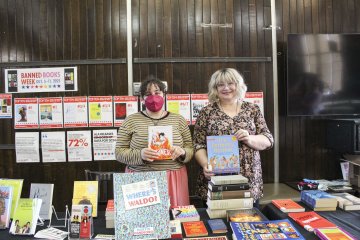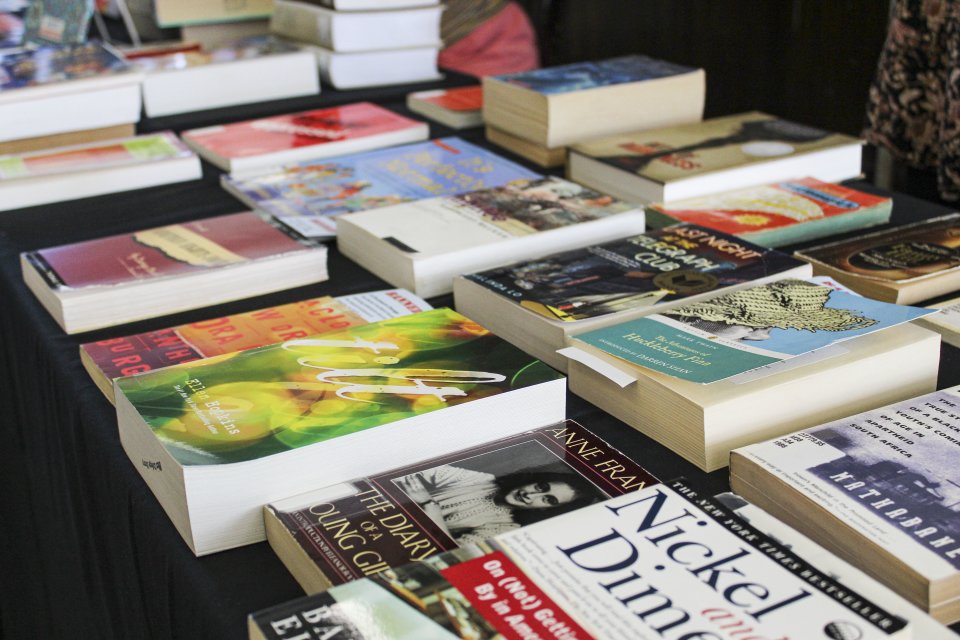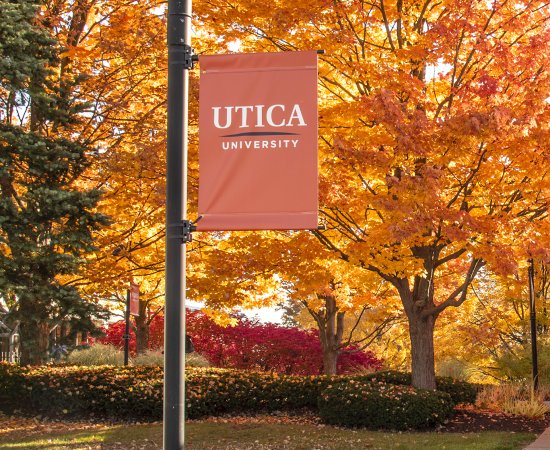
Defending the Freedom to Read – Utica University joins in Banned Books Week

“Without the freedom to read, we cannot consider different perspectives, cannot speak or question freely, and cannot learn.”
"Books and ideas are the most effective weapons against intolerance and ignorance." ― President Lyndon B Johnson
From books banned and condemned in the 1950s, to works of fiction being censored today, Utica University's Gannett Library filled Strebel Lounge on October 8 with banned and challenged books to celebrate the freedom to read at the annual Banned Book Read-In.
The event was part of the American Library Association's annual Banned Books Week, whose theme this year is "Censorship is So 1984."

"Every year we do this event, people note that awareness of book banning is more relevant than ever because there’s always something in the news about it," said Janis Winn, University Archivist and Reference Librarian. "But things are getting worse. The number of books being challenged in schools and libraries is continually growing, so much so that it's often hard to keep up. I often try to imagine what it would have been like if, as a young person, I hadn’t been allowed to read the books that now consider part of myself.”
While many of the most recognizable books such as To Kill a Mockingbird or Of Mice and Men are now commonplace high school reading, in their day they were harshly criticized and pushed back against. Decades later, book bans are more prevalent than ever, with many groups coordinating modern-day targeted campaigns against any books with LGBTQ characters or themes.
“Most of the bans being pushed today relate to books that deal with gender issues in some capacity,” says Winn. “That’s been the common theme of many bans in the 2020s.”

In 2024, the ALA documented the third highest volume of attempts to censor books since the organization started tracking more than 30 years ago. Censors targeted 2,452 unique book titles in 2024. The average number of unique titles targeted annually from 2001-2020 was 268. Extremist groups often use false claims to play on biases and fears about child safety, spreading prejudice and fear as the false claims are repeated.
“Without the freedom to read, we cannot consider different perspectives, cannot speak or question freely, and cannot learn,” the ALA states. “Without shared stories, communities fall apart.”
Some of the books on display came from the University Library’s collection, others from Professor Emerita of Journalism Kim Landon, who was the originator of the event on-campus in the 1980s and donated much of her personal banned book collection upon retirement. Other books on display came courtesy of Dianne Berry, the former Director of the Mid York Library System. Berry was on hand at the event to talk with attendees about the importance of keeping these stories alive and accessible.
“People see themselves in stories,” Berry said. “We learn, we grow, we get validation for one another through stories.”
More Stories

Utica University Announces Fall 2025 High Honors and Dean’s List
Provost and Senior Vice President for Academic Affairs Ann Damiano has announced the Utica University Fall 2025 semester High Honors...

Straight A’s and Sundaes
What better way to celebrate good grades than with a little ice cream? Straight A’s and Sundaes brought together undergraduate...

Utica University Dance Team competes in Nationals
The Utica University Dance Team competed at the Universal Dance Association (UDA) Collegiate National Dance Championships in Orlando, Florida this...
I would like to see logins and resources for:
For a general list of frequently used logins, you can also visit our logins page.
